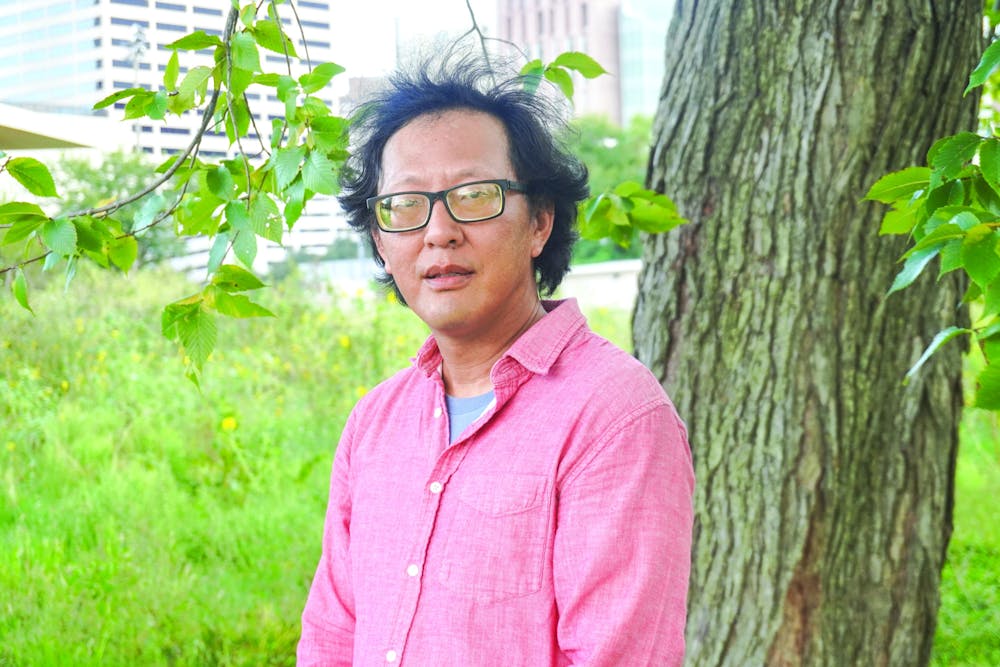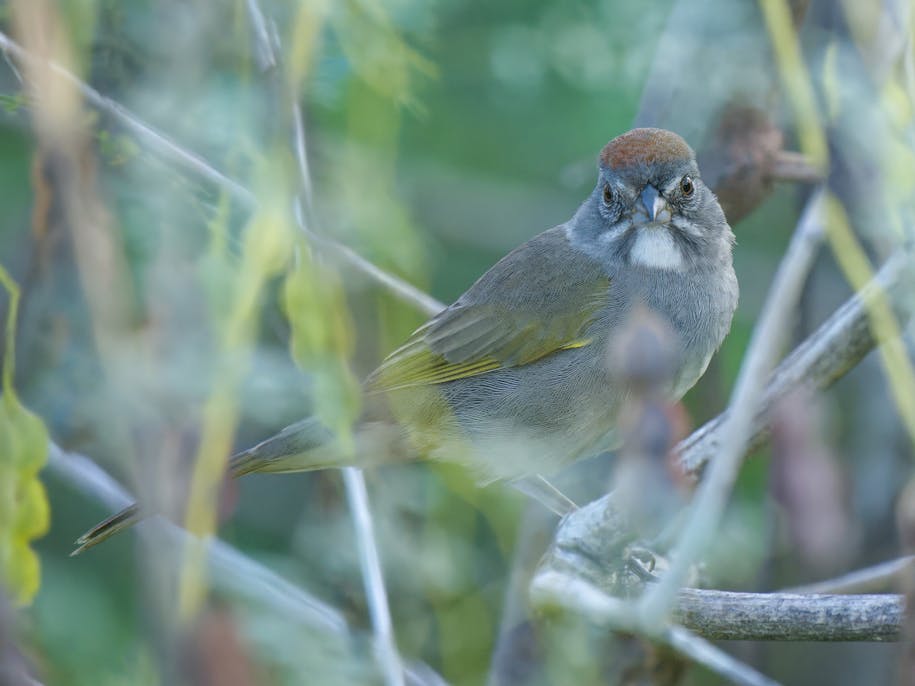Cin-Ty Lee keeps an eye on the sky

Cin-Ty Lee started birding when he was 9 years old. Now, he’s described as “one of the best birders in the Houston area.”
Until Oct. 24, there had been 270 distinct species of birds seen on Rice campus. That all changed last week when birders on an Audubon birding walk led by Rice professor Cin-Ty Lee, who teaches in the earth, environmental and planetary science department, spotted a green-tailed towhee. The green-tailed towhee is a rare find for Houston, and the excitement among the gathered birders spread fast.
“You started to see 20 people running … everyone was looking, and then word gets out, it goes to the community beyond just Rice,” Lee said. “Within an hour you’ve got people coming in from far away to see this bird.”
One reason Lee said the green-tailed towhee likely landed at Rice was that the environment around Harris Gully mirrors the habitat of the bird’s breeding grounds.

To preserve biodiversity on campus and encourage more novel species to come to Rice campus in the future, Lee said it is essential to maintain the Harris Gully natural area. He said he tries to publicize that resource as much as possible in order to help ensure that it is preserved.
“It’s about sharing that in an urban area you can take care of the land in some way that you don’t necessarily completely kill all biodiversity,” Lee said. “My main dream, my main mission … is to make sure that that place lasts forever even after I’m retired or dead for future generations to see nature in an urban area because we’ve destroyed so much of it.”
Lee said that he values birding because it encourages people to preserve natural spaces. He also said he appreciates the birding community’s ability to bridge ideological and cultural barriers.
“With the birds, I’ve met so many people that … maybe they don’t agree with me on [some] of my views, but they can see that I’m a human. I see them as a human, because we are meeting at the same level. We’re talking and we’re enjoying nature together,” Lee said. “That has been very special to me, in learning about people and even learning about myself. So it’s not just about the birds. It’s about the people too.”
Lee said he has seen the birding world change and grow more inclusive over the years.
“It’s just a fantastic community and such a supportive community of each other, all people of different ages, different ethnicities, different religious backgrounds, different races, it’s great,” Lee said. “30 years ago, it was not like this … I was probably the only non-white bird watcher that I knew, but now it’s quite different.”
Lee got his start birding at 9 years old, when a family friend brought him a book on identifying common birds and took him on a birding trip. He has particular memories of spotting a vermillion flycatcher.
“When I saw this, at nine, I thought, ‘Wow, there are things out there that are this beautiful?’ I got hooked and started looking for birds in my local area, and then I never stopped,” Lee said.
Graduate student Grant Parajuli, who is one of the founding heads of the Rice Student Birding Club, said that Lee has maintained that same sense of wonder and that it adds to his talent as a birder and leader.
“He’s someone who has been birding for an incredibly long time. He’s one of the best birders in the Houston area, period,” Parajuli said. “But even though [Lee] is so experienced, he still has that curiosity of someone like me, who’s just starting out, and seeing that in a leader ... is really inspiring.”
Devin Von Arx, a member of the birding club and novice birder, said that Lee’s knowledge is especially helpful for beginners.
“He is a fabulous teacher to the intro birdwatchers. He is there and he wants to explain what’s happening. He’ll teach you how to identify birds, he’ll teach you good practices of a birdwatcher,” Von Arx, a Hanszen College sophomore, said. “He truly wants people to learn about this passion of his and he’s really good at teaching it.”
One skill Lee said he has developed over his years as a birder is observation. He tries to instill the importance of this skill in his students in the courses he teaches.
“Drop the textbook. Go outdoors. Go look and go see,” Lee said. “Observation is the most important.”
One particular method Lee said he uses to hone his observation skills is drawing and painting birds. He said that this helps familiarize him with the small details and differences between birds which the average viewer might not notice.
“You really learn how to observe and look at the birds. I think a lot of people, if you talk to them, they are going to be like, ‘Oh, Cin-Ty is very good at identifying birds, seeing the subtle differences in birds,’” Lee said. “Well, the only secret is if you draw them, you can do it.”
Although Lee doesn’t consider himself an artist so much as a scientific illustrator, one of his works has been included in the Houston Climate Justice Museum’s “Climate Migrations” exhibit.
Recently, Lee and his friend Andrew Birch have put their birding and scientific illustration skills together and published the first volume of their “Field Guide to North American Flycatchers,” a guide to identifying some of the most difficult birds in North America to identify and distinguish.
“It was our dream to do this for a long time, but we never got around it,” Lee said. “When COVID hit, we realized we were thinking, my gosh, one of us could be dead tomorrow. You never know at that time. It's now or never.”
Lee said that being such an avid birder for such a long time has changed the way he carries himself in his everyday life.
“I can't live without it. It's a part of me. I'm looking for birds or paying attention all the time,” Lee said. “Once you start paying attention to birds, your senses are heightened. When you're anywhere you walk, you are looking or you're listening.”
More from The Rice Thresher

Rice football players go Greek, join Omega Psi Phi fraternity
Rice has operated without fraternities or sororities since its founding. In their place, residential college systems have served as the core of student life. But this spring, three Rice students joined a fraternity for the first time in school history.

Meet the Magisters: Fabiola López-Durán and Carlos Martínez-Rivera on architecture, wine and student bonds
Behind an unassuming brick exterior lies abstract art, overflowing bookshelves and handcrafted wood furniture. Floor-to-ceiling windows bathe the home of Fabiola López-Durán and Carlos Martínez-Rivera in natural light.

Core Teams talk raising kids at Rice
At most colleges, resident associates are students juggling their responsibilities alongside homework. At Rice, students aren’t the only ones who call the residential colleges home — RAs could be anything from a professor to a dean living down the hall along with their children.

Please note All comments are eligible for publication by The Rice Thresher.